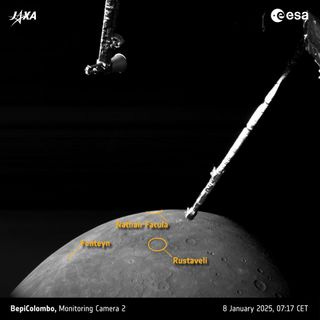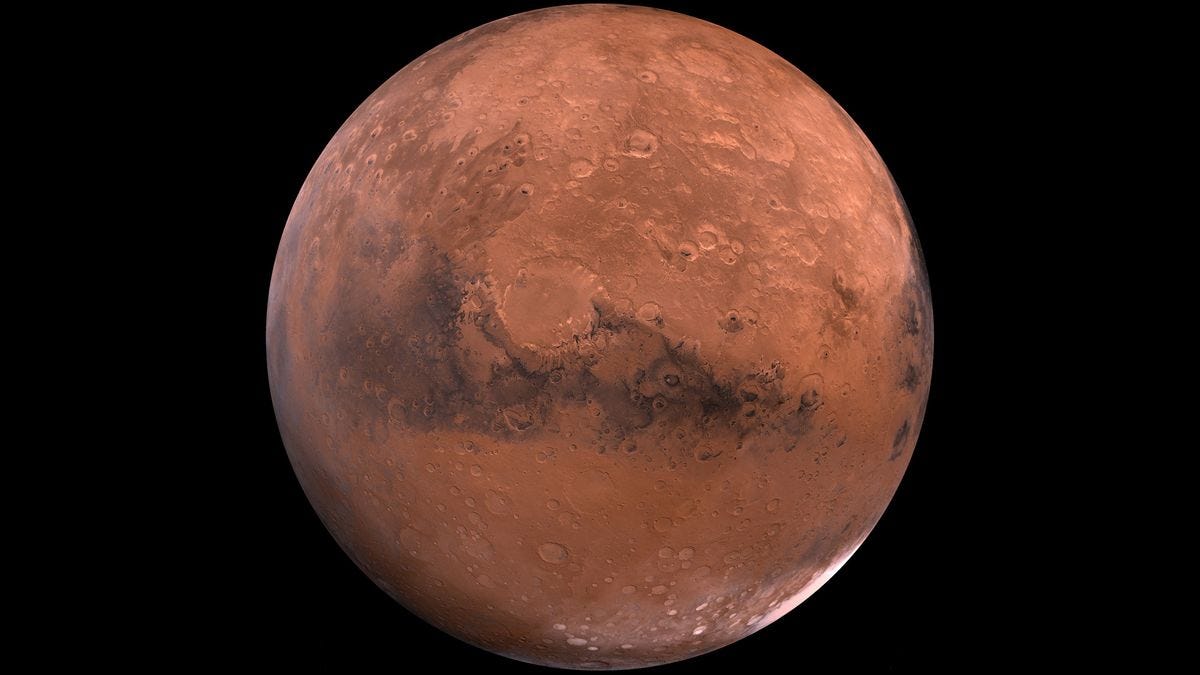NASA pauses work by key space science groups amid Trump executive orders
By Tariq Malik
The space agency’s planetary science analysis groups must pause while NASA checks if they comply with Trump’s orders.
NASA has ordered key planetary science committees for Mars, moon and other exploration to pause all work due to Trump administration executive orders. (Image credit: NASA)
NASA has ordered a pause on all work by key planetary and astrophysics science committees due to recent executive orders by President Donald Trump.
In a series of memos sent from NASA headquarters late Friday (Jan. 31), the space agency directed the leaders of at least 10 planetary science assessment and analysis groups that cover a wide range of topics, from the exploration of the moon and solar system planets to “ocean worlds” like the icy moons of Saturn and Jupiter. According to SpaceNews, NASA’s astrophysics assessment groups received similar memos, all of which cited a need to ensure the groups were in compliance with recent executive orders by Trump.
“As NASA continues to review and ensure compliance with presidential actions, we are requesting that you please pause all meetings and activities of Planetary Science Analysis/Assessment Groups,” read one NASA memo to the Mercury Exploration Assessment Group, which was obtained by Space.com and was nearly identical to memos sent to other planetary science committees.
The memos cited six Trump executive actions, three of them aimed at ending diversity, equity and inclusion (DEI) programs in the federal government. Two others targeting so-called “gender ideology extremism,” while another referred to “Unleashing American Energy” that roll back climate change-related executive orders by the Biden administration.
You may like
The pause order from NASA headquarters has already led to the cancellation of at least one planetary science meeting. The Mercury exploration group, known by the acronym MExAG was scheduled to hold its first in-person meeting this week from Feb. 4 to Feb. 6, but will no longer meet.
“We are forced, therefore, to cancel MExAG 2025,” the Mercury committee’s chair Carolyn Ernst, a planetary scientist with Johns Hopkins University Applied Physics Laboratory, wrote in a memo obtained by Space.com. “This turn of events is shocking and concerning, and is extra painful given the order comes four days before our first in-person meeting.” Some committee members had already begun travel for the meeting, Ernst added.
The nearly three-day hybrid meeting was expected to include at up 200 scientists attending either in person of virtually, one scientist Ed Rivera-Valentin shared on the social media site Bluesky. It was expected to include a number of researchers connected to the BepiColombo Mercury mission run by the Japan Aerospace Exploration Agency and the European Space Agency. The probe just made its sixth flyby of Mercury on Jan. 8.

“The MExAG steering committee is heartbroken that our first in-person meeting was cancelled due to this,” scientist Mallory Kinczyk wrote on Bluesky.
Vicky Hamilton, a planetary geologist with the Southwest Research Institute who chairs NASA’s Mars Exploration Program Analysis Group, said in a memo to her committee that the group has stopped planning work for its own meeting scheduled for April.
“We will let everyone know as soon as we are able to resume work,” she wrote in a memo obtained by Space.com.
NASA’s assessment and analysis groups meet regularly to assess the latest discoveries and missions in their specific fields and report them back to the space agency’s internal planetary science and astrophysics divisions. While they provide key insight into space science, the groups are not formal advisory committees overseen by the Federal Advisory Committee Act, according to SpaceNews. Many of the planetary science committees are overseen by the Lunar and Planetary Institute, which itself is managed by the Universities Space Research Association.
Related Stories:
— Trump wants the US to land astronauts on Mars soon. Could it happen?
— Trump says he’d create a Space National Guard if elected
— Trump’s space policy won’t catch Europe off guard, ESA chief says
NASA’s pause order to its analysis groups is one of several agency changes that have followed executive orders from the Trump administration.
The agency has begun restricting funding to programs related to diversity, equity and inequality, including to a Here to Observer program that connected students from underrepresented groups with NASA planetary science missions, according to SpaceNews.
SpaceNews also reported that the agency has removed a 2023 article about the NASA astronaut class of 1978, a team that included the agency’s first Black, Asian-American and female astronauts, written by NASA’s own history office. It appears to have been removed by Jan. 29, after being accessible as late as Jan. 25, SpaceNews added. You can still find the article on the Internet Archive.
Space.com has reached out to NASA headquarters for comment and will update this story if one is received.



